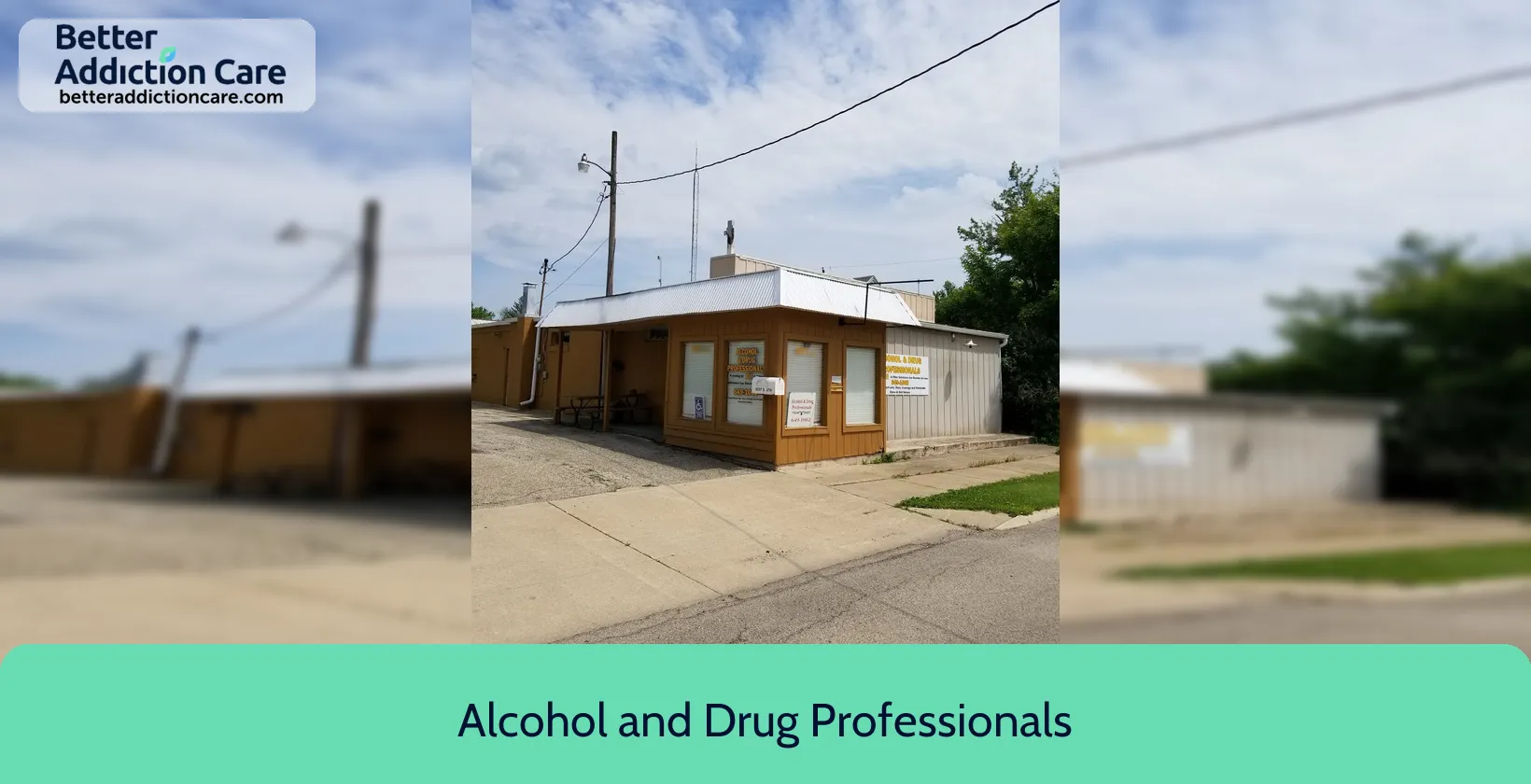Alcohol and Drug Professionals
Overview
Alcohol and Drug Professionals is an substance abuse treatment center that provides outpatient treatment for men and women from 16 and 65+ years of age. As part of their special programs, Alcohol and Drug Professionals To help patients achieve sobriety, Alcohol and Drug Professionals provides intake assessments. Afterward, patients receive cognitive behavioral therapy, telemedicine/telehealth therapy, and substance use disorder counseling during treatment. Alcohol and Drug Professionals is located in Canton, Illinois, providing treatment for people in Fulton County, accepting cash or self-payment.
Alcohol and Drug Professionals at a Glance
Payment Options
- Cash or self-payment
Assessments
- Screening for tobacco use
- Comprehensive substance use assessment
- Interim services for clients
- Screening for mental disorders
- Screening for substance use
Age Groups
- Children/adolescents
- Seniors
Ancillary Services
- Case management service
- Specially designed program for DUI/DWI clients
Highlights About Alcohol and Drug Professionals
6.80/10
With an overall rating of 6.80/10, this facility has following balanced range of services. Alcohol Rehabilitation: 8.00/10, Drug Rehab and Detox: 6.00/10, Insurance and Payments: 6.00/10, Treatment Options: 7.21/10.-
Alcohol Rehabilitation 8.00
-
Treatment Options 7.21
-
Drug Rehab and Detox 6.00
-
Insurance and Payments 6.00
Treatment At Alcohol and Drug Professionals
Treatment Conditions
- Alcoholism
- Substance use treatment
Care Levels
- Outpatient
- Regular outpatient treatment
- Aftercare
Treatment Modalities
- Cognitive behavioral therapy
- Telemedicine/telehealth therapy
- Substance use disorder counseling
- Smoking/vaping/tobacco cessation counseling
- Group counseling
Get Help Now
Common Questions About Alcohol and Drug Professionals
Contact Information
Other Facilities in Canton

6.71

7.03
DISCLAIMER: The facility name, logo and brand are the property and registered trademarks of North Central Behavioral Health Systems, and are being used for identification and informational purposes only. Use of these names, logos and brands shall not imply endorsement. BetterAddictionCare.com is not affiliated with or sponsored by North Central Behavioral Health Systems.

